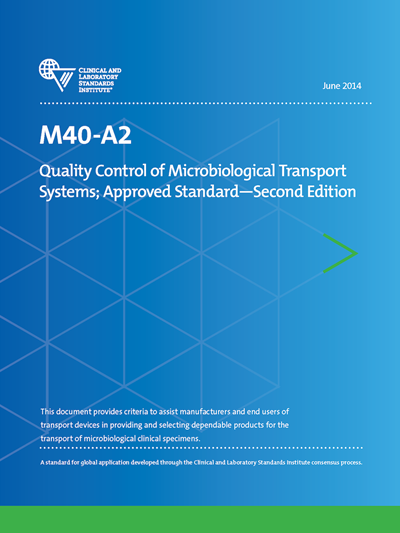CLSI M40
Quality Control of Microbiological Transport Systems, 2nd Edition
This document provides criteria to assist manufacturers and end users of transport devices in providing and selecting dependable products for the transport of microbiological clinical specimens.
This edition of the document was corrected in August 2015. Read the full correction notice here, and learn more about our corrections process here.
This document is available in electronic format only.
This reaffirmed document has been reviewed and confirmed as suitable to remain published without revision to content, as of September 2019. The document’s next scheduled review is generally five years after the reaffirmation date.
Member price:
List Price:Details
Chairholder: Paul Bourbeau, PhD, D(ABMM) and Paul L. Cerwinka, MSc, RM(AAM)
Date of Publication: June 26, 2014
Order Code PDF: CLSI M40A2E
ISBN Number: 1-56238-964-5
Order Code Print: print not available
Edition: Second
Pages: 56
CLSI M40 Additional Details
If interested in ordering larger quantities of this document in print, please contact us here.
The U.S. Food and Drug Administration (FDA) has evaluated and recognized this approved-level consensus standard for use in satisfying a regulatory requirement.

